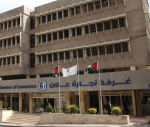You are here
Lebanon’s political elite is responsible for the failure to reform
Mar 11,2020 - Last updated at Mar 11,2020
Lebanon's decision to default on the repayment of a $1.2 billion Eurobond was inevitable. Prime Minister Hassan Diab was absolutely right to put d needs of the Lebanese over the timetable for paying the country's debilitating debts to international creditors. Lebanon should repay some $4.6 billion this year at a time Central Bank reserves have fallen to $20-30 billion.
Diab revealed Lebanon's debt now stands at $90 billion, or 170 per cent of GDP and pledged to restructure the debt as well as reduce the country's outsized banking sector. Beirut can expect tough negotiations with creditors because governments have, over decades, failed to enact reforms needed to rescue the collapsing economy.
Lebanon's political elite is responsible for the failure to reform, although hundreds of thousands of Lebanese have taken to the streets since October to demand reforms and an end to mismanagement and corruption. The elite refuses to meet these demands because this would involve government change: Not only an end to the reign of the elite but also of the sectarian model of governance, which allocates the presidency to a Maronite Christian, the prime ministry to a Sunni, the speakership of parliament to a Shia and shares out other positions to the country’s leading religious sects. This regime has led to Lebanon’s downfall.
During the best of times, the "swinging sixties", Beirut was the "Paris of the Middle East". The city boasted, somewhat disingenuously, that one could ski on its mountain slopes in the morning and swim at its beaches in the afternoon. This was, of course, possible towards the end of the snow season, and on days where the sea was calm and the sun shone bright. During the golden years, life was beautiful for Lebanese living above the poverty line. Those below were kept in line by local feudal lords. The country prospered with a laissez-faire economy and insouciant politicians who saw no need to reform.
But, all was not well in Lebanon. The mid-seventies ushered in 15 years of sectarian civil war. The commercial heart of Beirut was destroyed. The airport closed. Tourism collapsed. Hotels and restaurants shuttered. Tens of thousands of Lebanese, particularly educated youth, left the country. Israel occupied a swathe of the south in 1978. Israel's army wreaked destruction as it marched to Beirut in 1982. The civil war was meant to end in 1989 with the Taif agreement but continued until October 1990 when Syria's army intervened.
Civil conflict and Israeli invasions devastated Lebanon's physical and economic infrastructure, halved Lebanon's GDP and reduced its role as a trading and banking hub. Although, in the immediate post-war period the economy rebounded dramatically this recovery was illusory as it was from a wartime low. A new political elite emerged. Feudalists and traditional district bosses were replaced by warlords, entrepreneurs who made billions abroad and ambitious sons of sixties politicians.
Reconstruction has been haphazard and propelled by self-interested businessmen. Mismanagement and corruption have ballooned. A succession of governments have not repaired the country's war-damaged electricity grid, an essential component of recovery. Cuts occur daily. For full coverage, consumers have to pay both the country's electricity company and owners of neighbourhood generators. Many Lebanese cannot afford to pay two electricity bills and suffer outages. Potable water is in short supply and consumers rely on private companies for water. Lebanon’s beaches are polluted by raw sewage because the country has no means of recycling it. Garbage overflows from landfills. Unemployment is rife, among university graduates as well as manual labourers.
As a result of the war in Syria, Lebanon's lucrative trade and transit trade with Syria and the Arab hinterland has been halted and more than a million Syrian refugees have sought safety in Lebanon, putting its war-wasted infrastructure and depleted resources under greater pressure than before the conflict. Remittances from expatriate Lebanese have dwindled.
Lebanon's banking sector, which had relied on account secrecy, suffered after 2010 when the US imposed measures to curb money laundering, tax evasion by US citizens and transfers to organisations deemed to be "terrorist" by Washington. To attract depositors, Lebanese banks have offered high interest rates on dollars and Lebanese pounds, encouraging Lebanese to put their money in banks rather than invest in business which would promote economic development and provide jobs.
Lebanon is no longer carefree. It has been ranked 138th out of 180 countries on Transparency International's index of corruption and, in terms of income, Lebanon became one of the most unequal in the world. Forty per cent of Lebanese live below the poverty line while the top one per cent receives 25 per cent of national income.
As if Lebanon does not have enough troubles, the novel coronavirus is infecting increasing numbers of hapless, helpless civilians at a time hospitals suffer from lack of funding, medicines, virus testing kits and protective clothing for doctors and nurses.
Having installed before independence in 1943 the country's disastrous, and so far indestructible, sectarian system of governance, Lebanon's former colonial ruler, France, has proffered medical aid.













